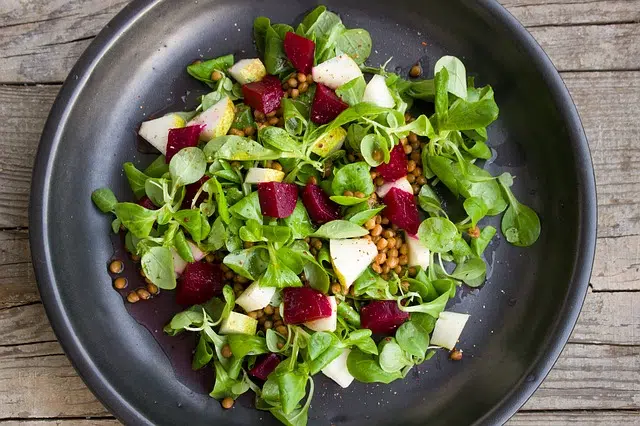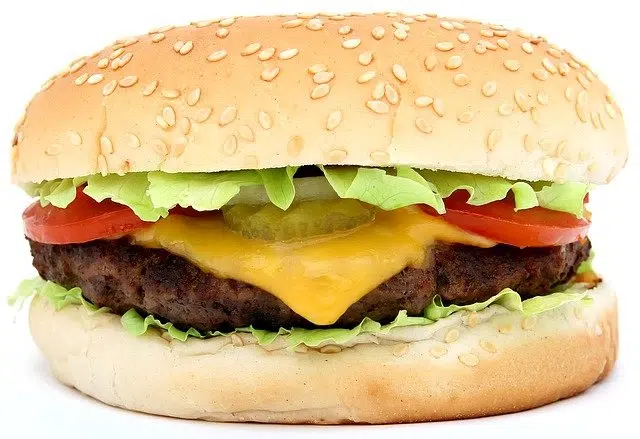
The diet is made up of eating habits.
A diet is the set of food substances that make up the nutritional behavior of living beings. The concept comes from the Greek diaita , which means "way of life" . Diet, therefore, is a habit and constitutes a way of living.
Sometimes, the term is used to refer to special regimens to lose weight or to combat certain diseases , although these cases represent dietary modifications and not the diet itself.
Types of diet
According to the diet they follow, living beings can be classified in different ways: carnivores (they eat meat), detritivores (they feed on dead organic substances), herbivores (they eat plants and fruits), insectivores (insects), omnivores (their system can digest meats and vegetables) or cannibals (they eat members of the same species), among others. Human beings are omnivorous by nature, although for ideological or religious reasons many choose to be vegetarians (they abstain from meat and fish).
Veganism , also known as strict vegetarianism , excludes any food products of animal origin from the diet. Better said, any whose preparation requires the torture and murder of an animal. For this reason, it does not accept meat of any kind, eggs or milk, but only vegetable products.
Although many of the detractors of this lifestyle claim that vegans do not get adequate nutrition, veganism has been around for a long time, and real statistics indicate that abstinence from animal products in the diet considerably reduces the risks of various types of cancer and other diseases of varying severity.

Certain foods make a diet unhealthy.
Cultural, social and economic influence on food
Human nutrition is not determined only by biological issues, but is influenced by social , economic and cultural factors. Many times the diet is conditioned by the availability of food, which depends on climatic conditions and the geographical location of each region.
Nor can we forget the personal factors that determine a diet, such as taste, the influence of advertising of certain food products, aesthetic preferences and other issues.
The ease of obtaining certain foods, climatic conditions and social customs mean that each country and region has its own diet. Argentina , for example, has one of the highest beef consumption rates in the world. The United States , on the other hand, is characterized by the consumption of junk food , that is, foods with little nutritional value and high levels of fat or sugar, such as hamburgers. This diet has caused an obesity epidemic in the American population.
All this shows us that the importance of diet is too great to cover only the food aspect of our lives . Each culture, each community feels identified not only with a series of customs, festivals and one or more languages, but also with its typical dishes, those whose recipes are passed from generation to generation and which seem not to be able to be reproduced with the same « magic” in other regions.
Returning to the case of veganism, although the first of its features that comes to mind is that it does not allow the consumption of animal products in its diet, it is about much more than that: it is a compassionate way of sharing the planet with the rest of the living beings . Giraffes cannot hunt, and that is why they tear fresh leaves from trees with their teeth; We cannot hunt without weapons either, and that is why we should limit ourselves to agriculture .
Growing our own food or raising enclosed animals and then killing them for food says a lot about us. We must adopt a diet that is consistent with our principles , that makes us proud of our decisions.
Diet for athletes
Saúl Sánchez was the nutritionist for the first team of the Real Club Deportivo de La Coruña for three seasons. Graduated in Human Nutrition and Dietetics at the University of Santiago de Compostela ( USC ), he has also completed a Master's Degree in Genetic, Environmental and Nutritional Conditions of Development and Growth ( USC ) and completed the University Expert Course in Sports Nutrition at the University International of La Rioja ( UNIR ).
We asked this Spanish expert what foods cannot be missing and those that should not be included in the diet of a person who frequently practices sports :
There is no essential food, but it is important to try to cover the requirements of proteins, fats and carbohydrates each day. In the same way, the inclusion of vegetables, especially vegetables, in all the main meals of the day makes a difference. This way we ensure a good redox balance in the body.
Saul Sanchez
